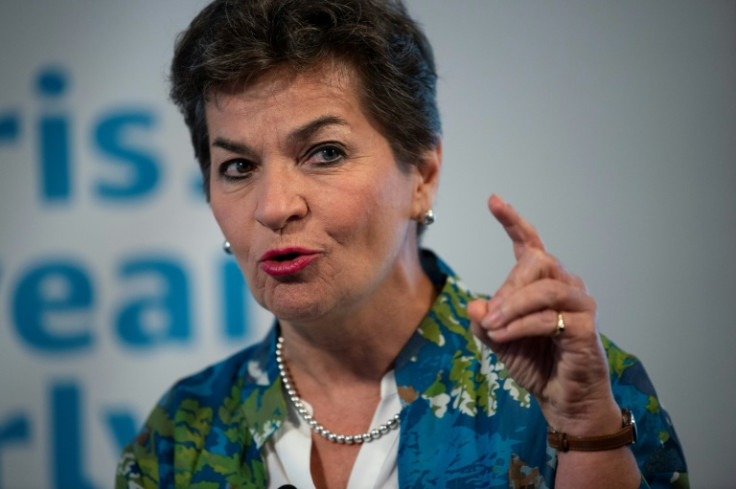
The UN's former climate chief said she was "giving up hope" that fossil fuel firms will be part of the solution to warming as pivotal COP28 talks start Thursday in oil-rich United Arab Emirates.
With the UN climate negotiations expected to feature a showdown on the future of fossil fuels, Christiana Figueres expressed concern over reports the UAE planned to use its role as host to strike oil and gas deals.
Figueres, who led the UN climate convention when the landmark Paris deal was struck, told AFP that she had previously championed the idea that the world's polluting coal, oil and gas industries should "sit at the table".
"I'm actually giving up hope on that," she said, adding that it was "unforgivable" that the industries funnelled the bumper profits of recent years into shareholder dividends and lobbying efforts -- rather than invest in renewable energy technologies.
She also called for more transparency around fossil fuel influence from the COP presidency, which is held by the UAE's Sultan Al Jaber, who is also head of the Emirates state oil and gas company.
Reacting to BBC reports of leaked documents suggesting the UAE planned to exploit its role organising the climate conference to strike fossil fuel deals, Figueres said if true the claims would mark a "serious breach of the responsibility of the COP presidency".
"It is not a meeting to advance the interests of the oil and gas industry," she told PBS News in a linked interview hosted by the organisation Covering Climate Now.
"This is a convening of all the governments in the world to advance the protection of the planet... precisely because of the negative consequences of mostly the operation of the oil and gas industry."
Jaber strongly denied the BBC reports Wednesday, saying they were "false, not true, incorrect".
Global climate negotiations largely avoided mentioning fossil fuels for decades, until Glasgow's COP26 agreed to "phasedown" unfiltered coal power and the "phase-out of inefficient fossil fuel subsidies".
Momentum has built since then on a more ambitious pledge to move away from all fossil fuels and Figueres said an unprecedented surge in renewables and electric vehicles gave her optimism that the world can still achieve its climate goals.
Those centre on the 2015 Paris deal, which saw nearly 200 nations agree to limit global warming to "well below" two degrees Celsius since the preindustrial era, and preferably a safer threshold of 1.5C.
Figueres, a member of Costa Rica's climate negotiating team before she took the helm of the UN's climate change body from 2010 to 2016, said that deal was signed by leaders out of "enlightened self interest".
But she said that the world was now "horribly close" to the 1.5C limit, with emissions continuing to rise and this year is almost certain to be the hottest in human history.
She called on leaders attending the COP28 meeting to respond to a damning Global Stocktake on the world's climate action shortcomings by both accepting efforts so far have been "completely insufficient" and by doubling down on future action.
One key target, she said, should be fossil fuel subsidies, which the International Monetary Fund has said surged to a record $7 trillion last year -- equivalent to around 7 percent of global gross domestic product.
"My outrage is fossil fuel subsidies," said Figueres, adding that she would also be in favour of extra taxation on fossil fuel profits -- a suggestion championed by developing countries facing the sharpest impact of accelerating weather extremes.
She said leaders must focus on the need to almost halve emissions by 2030, which the UN's IPCC climate expert panel says is needed to keep 1.5C of warming a possibility.
"If we breach the ceiling that has been established by scientists for 2030, we have a serious problem in our hands, because we will have very likely opened a cascade of tipping points into the ecosystems that negatively affect each other," she said.
"And that will be incredibly damaging to human life, but also to all other life on this planet."







